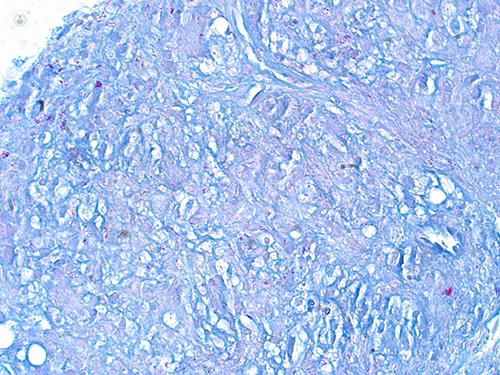The ABC of viral hepatitis - part 2
Written by:The viruses that affect the liver can cause short-term or long-term illness. Whilst generally the short-lived infections don't do any lasting harm, chronic hepatitis can have serious consequences.

Hepatitis A
Hepatitis A, also known as Hep A, or HAV is highly infectious and most commonly passed on through contaminated food and drink. The infection path is said to be faecal-oral, which means that the virus is passed on when traces of contaminated poo enter via the mouth. Bad sanitation and poor hygiene are likely to be environments where the virus can spread.
There is no specific treatment for hepatitis A because in most cases it is self-limiting, which means it goes away on its own. Symptoms usually arrive around two to six weeks after infection and it can take up to six months to recover from the virus. Fortunately, most healthy people will make a full recovery and will have a lifelong immunity to the virus. Serious complications such as liver failure are very rare and tend to affect those with weakened immune systems or pre-existing liver conditions.
Tips to prevent Hep A
Hep A is uncommon in the UK; however, when travelling to countries with poor sanitation you may be at increased risk;
- Practise good hygiene – make sure you wash your hands.
- Avoid potentially unclean food and water.
A hepatitis A vaccine is also available for people who may be at higher risk of contracting the disease.
Hepatitis B
Hepatitis B, commonly referred to as Hep B, or HBV is a blood-borne virus, which means that if an infected person’s blood is mixed with yours, you can contract the virus. As viruses go, it can survive quite a long time out of the body, so shared razor blades, needles, etc. are a common mode of transmission. It can also be passed from mother to baby.
As with hepatitis A, there is no specific treatment. For adults, most cases of infection are acute and will clear without treatment within six months. Chronic hepatitis B is most common in people who get infected at birth. This can lead to more serious complications like cirrhosis and may require treatment.
Tips to prevent Hep B
Hepatitis B is passed on when contaminated blood enters your bloodstream.
- Avoid sharing things like razor blades or toothbrushes.
- Avoid sharing needles or other drug paraphernalia.
- Practise safe sex.
Hepatitis C
Hepatitis C, Hep C or HCA is usually spread by blood-to-blood contact. In the majority of cases, a hepatitis C infection is chronic, however, initially there are often no symptoms. In fact, a large number of carriers of the virus don’t know they are infected – it is often not until damage to the liver has become quite serious that symptoms become apparent. Chronic hepatitis C usually leads to cirrhosis. If it is present at the same time as Hep A or B, the damage to the liver can be exaggerated.
Hepatitis C can be effectively treated with medication that will completely clear the virus. The treatment for the virus has progressed in recent years and with modern medication, 90% of cases can be cured.
Tips to prevent Hep C
As a blood-borne virus, it is important to reduce the risk of contact with contaminated blood and those who inject drugs are at heightened risk:
- Avoid sharing drug paraphernalia, such as needles or syringes.
- Be wary of other potential sources of infection including razor blades.
- Practise safe sex
Unlike other types of hepatitis virus, there is currently no vaccine against Hep C.
Hepatitis E
Hepatitis E, Hep E, or HEV, is the most common cause of acute hepatitis in the UK. It is generally a milder infection than other types of hepatitis and is usually self-limiting, although particular care should be taken in patients who have compromised immune systems or pre-existing liver conditions. Pregnant women are also at increased risk of liver failure due to the virus.
Like hepatitis A and B, the virus is passed on from faecal matter and contaminated food and water can cause infection. Another common route of infection is via the undercooked meat of an animal carrying the virus – something known as zoonosis. Pigs, deer and rabbits among others can all carry the disease.
There is no specific treatment for hepatitis E and in most cases, people will make a full recovery without any. For people at a higher risk of suffering liver failure, due to a pre-existing liver condition for example, anti-viral treatment might be an option.
Tips to prevent Hep E
Ensuring that all meat is properly cooked and practising good hygiene help prevent the spread of the disease. If you are travelling to a country with a higher prevalence of hepatitis E:
- Wash your hands regularly
- Avoid cleaning your teeth with tap water
- Avoid ice cubes which may have been made from contaminated water
- Avoid drinking tap water
- Avoid uncooked meat and shellfish
- Ensure that fruit and uncooked vegetables are properly washed in clean water
As with hepatitis C, there is currently no vaccine for HEV.


